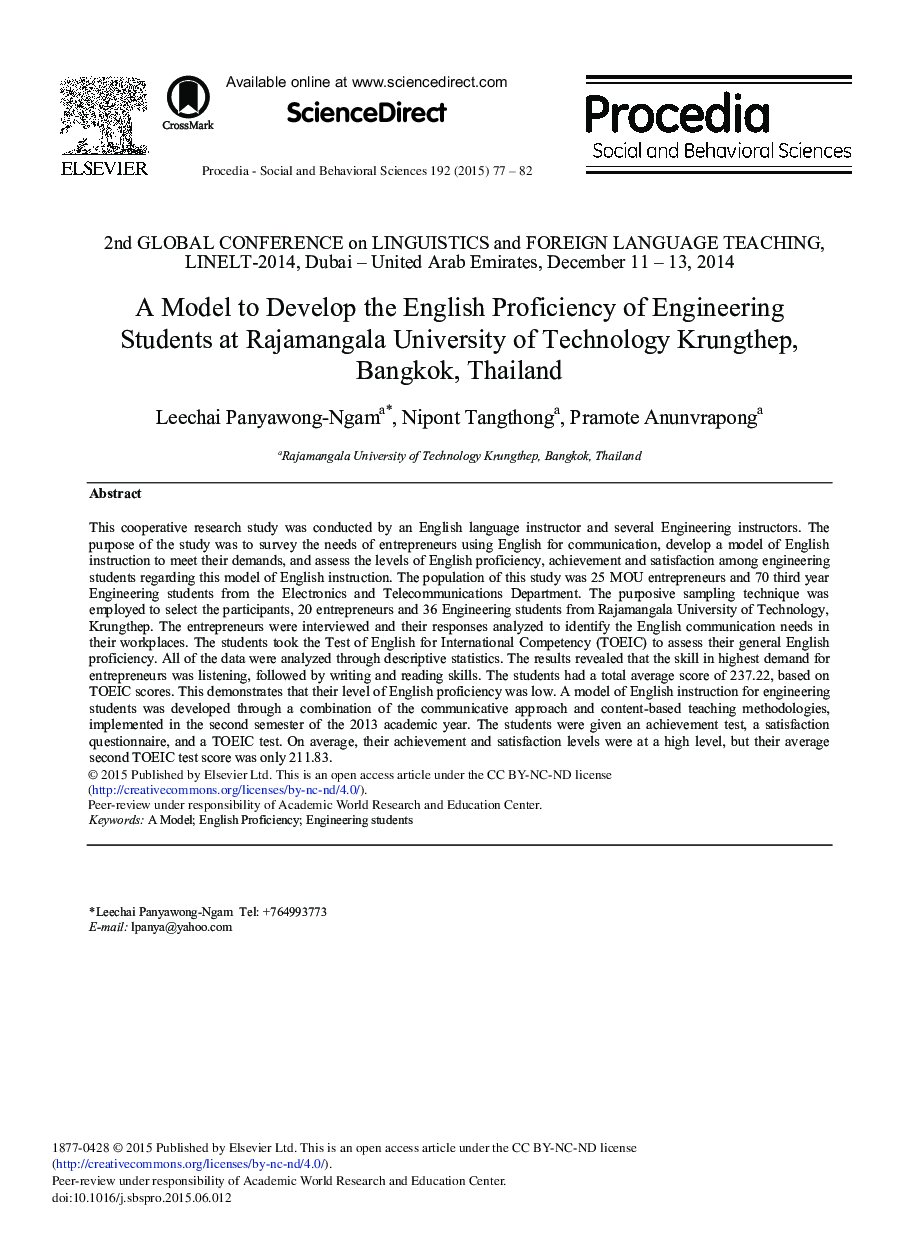| Article ID | Journal | Published Year | Pages | File Type |
|---|---|---|---|---|
| 1109233 | Procedia - Social and Behavioral Sciences | 2015 | 6 Pages |
This cooperative research study was conducted by an English language instructor and several Engineering instructors. The purpose of the study was to survey the needs of entrepreneurs using English for communication, develop a model of English instruction to meet their demands, and assess the levels of English proficiency, achievement and satisfaction among engineering students regarding this model of English instruction. The population of this study was 25 MOU entrepreneurs and 70 third year Engineering students from the Electronics and Telecommunications Department. The purposive sampling technique was employed to select the participants, 20 entrepreneurs and 36 Engineering students from Rajamangala University of Technology, Krungthep. The entrepreneurs were interviewed and their responses analyzed to identify the English communication needs in their workplaces. The students took the Test of English for International Competency (TOEIC) to assess their general English proficiency. All of the data were analyzed through descriptive statistics. The results revealed that the skill in highest demand for entrepreneurs was listening, followed by writing and reading skills. The students had a total average score of 237.22, based on TOEIC scores. This demonstrates that their level of English proficiency was low. A model of English instruction for engineering students was developed through a combination of the communicative approach and content-based teaching methodologies, implemented in the second semester of the 2013 academic year. The students were given an achievement test, a satisfaction questionnaire, and a TOEIC test. On average, their achievement and satisfaction levels were at a high level, but their average second TOEIC test score was only 211.83.
